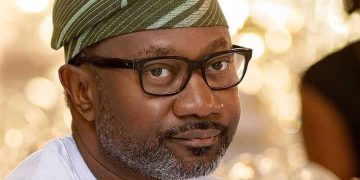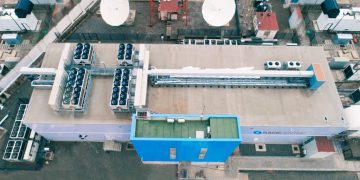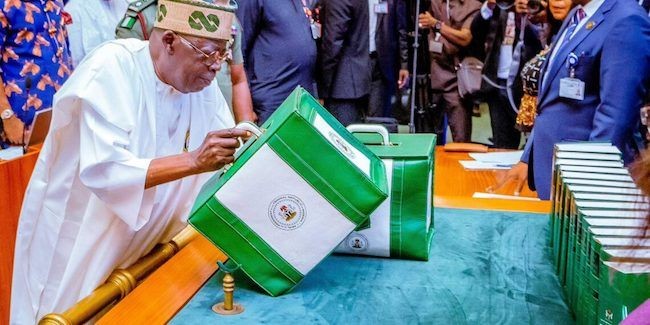President Bola Ahmed Tinubu has unveiled the 2025 Appropriation Bill, tagged the “Budget of Restoration: Securing Peace, Rebuilding Prosperity,” before the 10th National Assembly on Wednesday, December 18.
During the presentation, the president outlined a proposed expenditure of ₦47.96 trillion, providing a detailed allocation for key sectors of the economy. He emphasized that the budget aims to address inflation, strengthen the naira, and boost crude oil production.
Tinubu stated that the government plans to reduce inflation from the current 34.6% to 15% by 2025, improve the exchange rate from approximately ₦1,700 per US dollar to ₦1,500, and increase crude oil production to 2.06 million barrels per day (mbpd). To fund the budget, the administration is targeting ₦34.82 trillion in revenue, leaving a projected deficit of ₦13.08 trillion, equivalent to 3.89% of GDP.
“This is an ambitious but necessary budget to secure our nation’s future,” Tinubu affirmed.
Breakdown of Allocations
The president highlighted the allocations for major sectors, underscoring their importance to national development:
Defence and Security: ₦4.91 trillion
Infrastructure: ₦4.06 trillion
Education: ₦3.52 trillion
Health: ₦2.48 trillion
Security
The budget prioritizes substantial funding for the military, paramilitary, and police to ensure national security, protect borders, and maintain government control across all territories.
“Our administration will continue to equip the Armed Forces and Police with modern tools and technology to keep Nigerians safe,” Tinubu stated. “By restoring peace, we revive businesses, rebuild communities, and secure our sovereignty.”
Infrastructure
President Tinubu highlighted ongoing infrastructure projects, including the Lagos-Calabar and Sokoto-Badagry highways, as critical to economic growth and improved quality of life.
The Renewed Hope Infrastructure Development Fund will leverage private investments to enhance energy, transport, and public works, creating jobs and driving economic growth.
Education
The government has allocated ₦826.9 billion for educational infrastructure, covering Universal Basic Education (UBEC) and nine new higher education institutions.
Health
A total of ₦402 billion is earmarked for health infrastructure, alongside ₦282.65 billion for the Basic Health Care Fund. Tinubu pledged improved healthcare services through the revitalization of hospitals and the procurement of essential medicines.
“This will enhance access to quality healthcare while reducing reliance on medical imports,” he noted.
Agriculture
Tinubu reiterated his administration’s commitment to food security, emphasizing support for farmers through funding and inputs to boost agricultural productivity.
“Insecurity has disrupted this vital sector, but we will take bold steps to ensure Nigerians have enough to eat and no one goes to bed hungry,” the president declared.
A Vision for the Future
President Tinubu described the 2025 budget as a blueprint for restoring Nigeria’s economic stability and social cohesion. He assured the nation that his administration would remain focused on delivering on its promises to rebuild prosperity and ensure the safety and well-being of all citizens.
























































